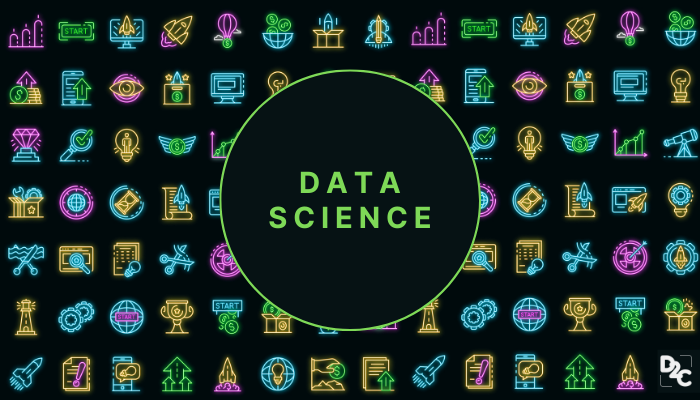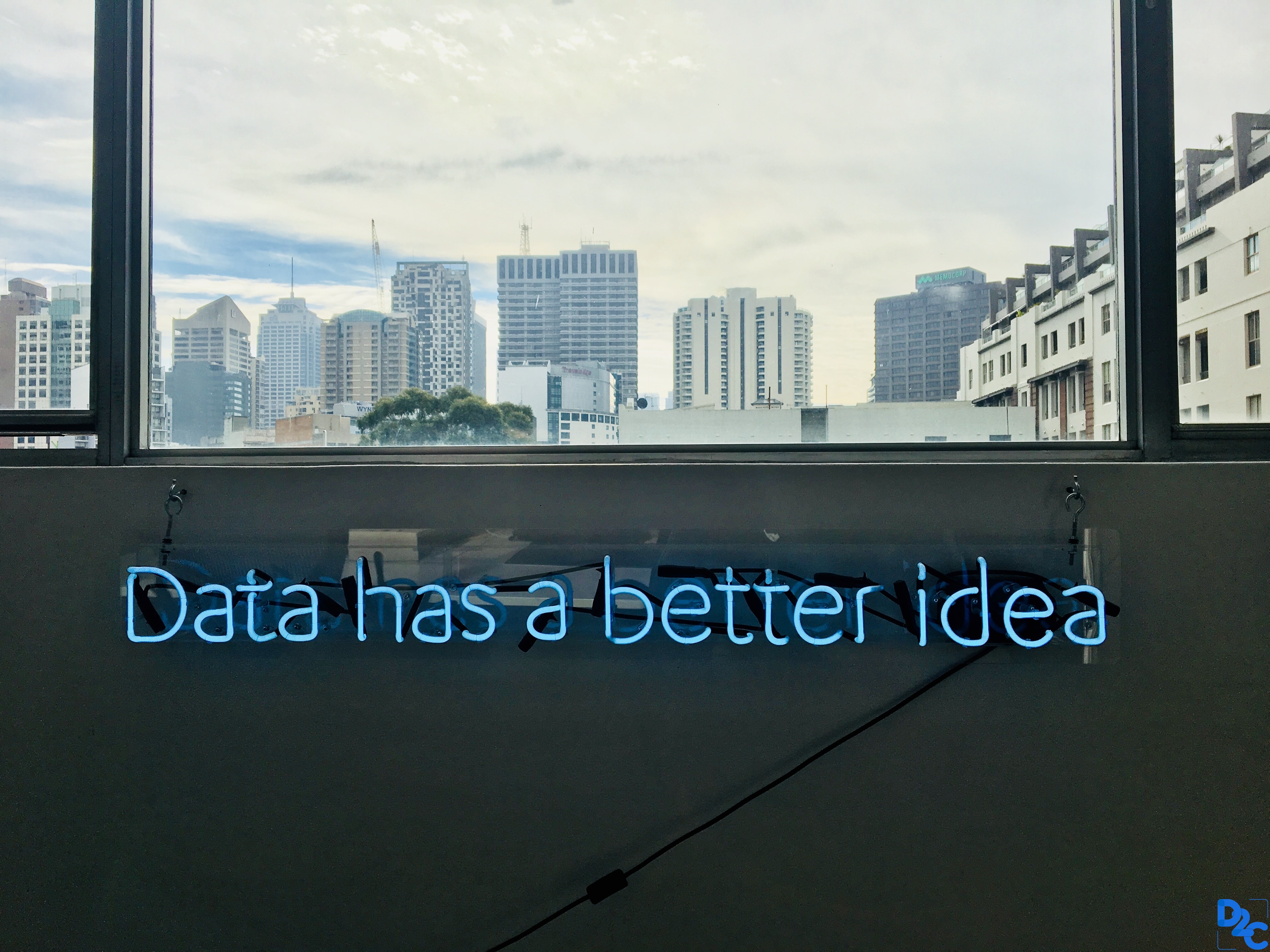8 amazing reasons to take a full-time data science course!

More than 2.5 quintillion bytes of data is generated every day and it's only growing with time, thus leading to a data-driven technological dynamism in industries nowadays - no doubt data scientists have become a particularly celebrated job profile. So much so that these days some have begun addressing themselves as data scientists in view of the nature of their job, and not on account of any certification or degrees pursued by them in data sciences. While others acquire the job title by either getting a master's in data science or by upskilling themselves through some online course certifications in the said field.
The last ten years have seen plenty of data science courses and establishments being launched in abundance in the market. Generally set off by the interest for quality data science ability in the industries like retail, energy, finance, travel, and government; these courses are planned in various formats to cater to all these different sectors.
Pondering on the situation, both full-time and part-time data science courses have been intended for hands-on industrial training; be that as it may, going for either has its own advantages and disadvantages. However, it is a good idea to go full-time if you are entering the field and don't have time constraints.
Also read: Data Science job trends - What do the statistics say?
The primary reason why full-time data science courses are popular among students is that they offer an opportunity to learn about real-world applications of data analytics and machine learning techniques in one go. They also help you get hands-on experience while working towards your career goals. And if you want to pursue this path further, then enrolling yourself in a full-time data science program can be quite beneficial.
In this article, we'll discuss what makes such full-time programs take an upper edge over the other options available out there, hop on!
1. Exposure to a broad range of first-hand experiences and real-world problems
- Full-time data-science training courses give a wide scope of direct insights and an abundance of hands-on experiences, which is imperative to obtaining industry-relevant abilities and skill sets, thus ultimately making you a superior fit for the market.
- Steady exposure to genuine real-world issues establishes a solid framework, consequently making you fit enough to work optimally under pressure.
- With regards to part-time or short data science certification courses, the brief term compares to lesser vulnerability – this is the place where the major distinction dwells.
"Full-time information science courses empower understudies to perform at the pinnacle of their ability as they can work with fellow compatible understudies who seek similar job profiles upon the successful completion of the course. This competition is solid as it spurs many to put forth a valiant effort. For other people, this competition might be less gladly received. Well it actually empowers them to gain from others while working together in class schoolwork or hackathons," said Ram Seshadri, Google ML Program Manager. (Prior to this, he worked as a data scientist at Morgan Stanley.)
2. A chance to build a strong foundation
As mentioned above, most people who opt for part-time data science training do so due to the lack of time constraints. This means that they're unable to dedicate sufficient hours to complete the entire syllabus offered by the institution. In contrast, when opting for a full-time data science course, you will find ample opportunities to gain practical knowledge from experts and mentors. The instructors here will guide you step by step with their expertise and make sure that you understand every concept thoroughly before moving ahead. Thus, building a strong base becomes easier than ever.
3. An opportunity to develop leadership qualities
A lot of companies look for candidates who possess certain traits and characteristics. These include but aren’t limited to communication skills, problem-solving capabilities, analytical thinking, critical analysis, etc. If you wish to stand apart in the crowd, then taking up a full-time data scientist course would prove to be extremely helpful. It gives you an opportunity to hone your leadership skills through various assignments and projects. You will come across numerous challenges during your journey, and having the ability to lead others effectively will definitely set you apart from the rest.
4. Organized and well-planned program
- Full-time courses incorporate hypothetical standards, tests, and useful modules applied to real-world circumstances. The teachers are for the most part senior data science researchers who have worked in the business and are most appropriate to impart industry-oriented skills in a full-fledged and practical classroom framework.
- Many-a-time individuals are lured into fostering their abilities by selecting brief time-frame/part-time/short courses - referring to free online videos or reading blogs and related website tips. In any case, these free assets don't give a coordinated learning system regardless of whether the information is from solid sources.
- A carefully laid out skill development structure in data sciences is vital for a complete understanding of the concept - no matter if you already have some experience in this domain.
5. Cultivates a profound and permanent knowledge
- Generally, part-time data science certification courses do not help students in mastering job-ready techniques. The explanation being, data science concepts are optimized to be delivered in a specified time span, hence they are fast-tracked. Thus, students neglect to hold on to the core concepts or review things when required.
- This is where full-time dedicated data science courses jump in. Understudies have the opportunity to dedicate a good part of their time and daily routine to learn new apparatuses, understand business problems, have teamwork exposure, and above all, have a basic reasoning outlook.
- What's more? The direction and mentorship from a regular teaching workforce assist you with setting out an appropriate vocation. Adding on, Ram says, "Undergraduates can fully devote themselves to mastering the concepts and tools of data science without the stresses of their jobs."
6. Wholesome interaction and better doubt resolution!
While the course is being taught students can ask questions and clarify doubts. It's important that one can ask questions in real-time and clarify doubts if they want to master some statistical concepts. Otherwise, it is hard to get the hang of data science.
Regular classroom sessions, follow-ups, and one-on-one faculty-student interaction help find the key to real-life problems in a much methodical manner and get back if any doubt arises. This allows you to keep learning and not interrupt your flow, which isn't often the case in part-time data science courses.
7. Master one technique at a time
- Prior to getting their hands on new headways, one should initially get himself equipped with the data science sector. It can only be achieved if candidates refrain from moving forth with mastering different techniques within a short span of time.
- Learners have to understand what has happened over the last few years. This will ultimately assist wannabes with getting hold of new learning headways in the information science space. Basically, momentary courses can make you a factotum of all techniques and expert of none!
8. HRs and recruiters generally prefer candidates with a full-time certification
Full-time data science program accreditations bring more worth than part-time or short course testaments. The more drawn-out length of the course is intended to carry out abilities instructed in the classroom to take care of industry-oriented problems through various internships and institute-industry joint efforts.
Also read: Build a data science portfolio with these easy steps and get hired!
- One will have access to industry partners and contacts after graduating, as well as job placement assistance.
- Data has become an indispensable part of the 21st century with our industries witnessing rapid digitalization in the last decade. Hence, organizations depend on data to fortify their business analysis and outcomes.
- Data science isn't just about innovation - regardless of whether you work as a recruiting HR, sales marketing expert, or in the manufacturing, aviation, healthcare, agriculture, or advertising sector, data science is playing a huge role in defining and transforming your work sector and settling on the right business choices.
The bottom line
It’s not hard to find that many people think about taking up a career as a data analyst but it takes years of training before becoming proficient at what they need to know. A lot of companies now offer short-term programs that may only last 3 months or so. These programs are great because they allow someone to gain hands-on experience working with large amounts of data quickly.
However, there are also disadvantages to them. For example, they often lack proper guidance and support. They might even teach bad practices like using Excel instead of R. If you want to become a professional data scientist then you should consider enrolling in a program that will provide you with the best possible education. There are several different types of programs available depending upon your needs. Some schools focus primarily on theory, others emphasize practice. You could choose between a full-time certificate or a degree program.
If you already had full-time data science courses on one hand you can take an internship on the other. If you don't have a full-time data science master's program, find something similar-such as a CSF or CSM, internships, and months-long data science boot camps. Also, keep in mind that your data science studies will vary depending on what field of data sciences excites you.
Happy learning!
You may be interested in reading:
- Data scientist job vacancies at MPL; know the hiring process
- 10 best C++ IDEs that developers mention the most!
- IIM CAT 2021: Eligibility criteria changed; minimum percentage removed!
- 10 best Python IDEs to develop world-class software and application
- Flipkart to hire Management Trainees & Interns at a salary of INR 26 Lakhs through the Campus Case Challenge - WiRED. Apply now!
- HUL to conduct interviews for their coveted summer internship programme ULIP 2022 via HUL L.I.M.E. | Apply now!
Login to continue reading
And access exclusive content, personalized recommendations, and career-boosting opportunities.

















Comments
Add comment